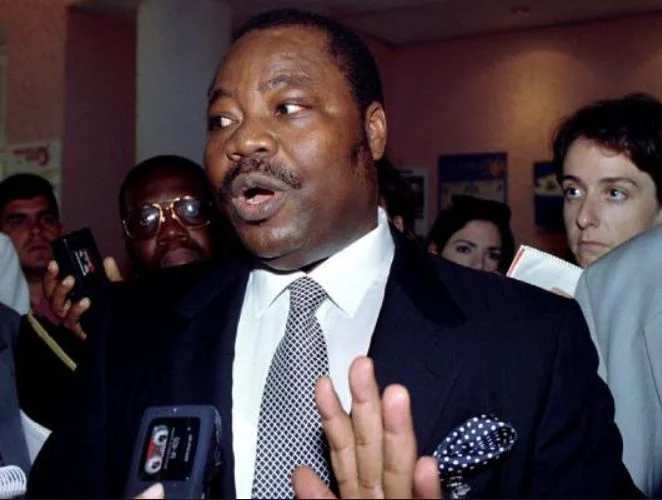BUSINESS

FEDERAL GOVERNMENT URGED TO ACKNOWLEDGE ETETE’S IMPACT ON THE OIL INDUSTRY
Ijaw environmental activist Bolouowei Kurokeme has urged the Federal Government and key players in the oil and gas industry to acknowledge the contributions of former Petroleum Resources Minister, Dan Etete.
He described Etete as a pivotal figure in securing Nigeria’s oil sovereignty and a strong advocate for indigenous participation in the energy sector.
Kurokeme, who disclosed this during an interview with journalists on Sunday, also highlighted Etete’s endearing legacy, especially his “bold policies in the 1990s that laid the groundwork for Nigeria’s present gains“ in local content development.
According to him, the foresight of Etete in pioneering local content is the foundation for the recent ‘Nigeria First Policy’ by President Bola Tinubu.
He said, “I wish to state with a high sense of responsibility that Chief Dan Atete did not have direct interest in OPL 245. It was the directors of Malabu who appointed him as a consultant to the oil firm.
“For the record, Etete was the one who set up the Marginal Field Decree of 1998 for the benefit of all Nigerians to be included in the oil and gas industry.
“Please note that the foresight of Etete in pioneering local content is the foundation for the recent dynamic Nigeria First Policy by President Bola Tinubu that places emphasis on made-in-Nigeria goods,” he stated.
By the end of 2024, Nigeria achieved a record 56 per cent local content participation in the oil and gas sector, according to the Nigerian Content Development and Monitoring Board. Kurokeme emphasized that this significant progress traces back to the “visionary leadership” of Dan Etete, urging the nation not to forget his foundational role in initiating the journey toward greater indigenous involvement.
“He was a pioneer who dared to challenge foreign monopolies and empowered Nigerian entrepreneurs at a time when it was unpopular, even dangerous, to do so,” he stated.
The environmental activist highlighted that Dan Etete served as Petroleum Minister from 1995 to 1998 during the late General Sani Abacha’s regime—a politically turbulent era marked by intense international scrutiny and substantial foreign dominance over Nigeria’s oil resources.
He further noted that despite the difficult circumstances, Etete pushed for the assignment of oil blocks to Nigerian-owned firms, notably the prominent OPL 245 granted to Malabu Oil and Gas, aiming to strengthen the country’s economic independence.
He said, “These allocations were not arbitrary handouts. They were strategic interventions aimed at transferring wealth, building local capacity, and giving Nigerians a direct stake in their oil wealth.”
Kurokeme further defended the former minister’s controversial involvement in the OPL 245 saga, noting that since Etete did not have any interest in OPL 245, no court has found him guilty of corruption.
He said, “The Malabu case is a classic example of how nationalist efforts in the Global South are vilified when they threaten the interests of international capital. Etete wasn’t perfect, but he was a patriot who wanted Nigerians—especially the Niger Delta people—to benefit directly from their God-given resources.”
Kurokeme further stated that the emergence of indigenous oil companies is largely the result of the sector reforms implemented under Etete’s leadership.
“Today’s gains are the fruits of trees he planted decades ago. He deserves credit, not condemnation,” Kurokeme declared.
He also described the octogenarian as a “misunderstood reformer” whose role has been deliberately downplayed in Nigeria’s economic history.
“Though one may not always agree with his political leaning, you cannot but honour his far above petty politicking disposition. He is a typical example of politics without bitterness and never the one to court the vagaries of doublespeak in the often-volatile terrain of Nigeria’s political discourse,” added.
He urged the Federal Government to formally recognise Etete’s contributions and initiate national conversations to restore what he termed a ’distorted legacy’.
"This represents a significant development in our ongoing coverage of current events."— Editorial Board









